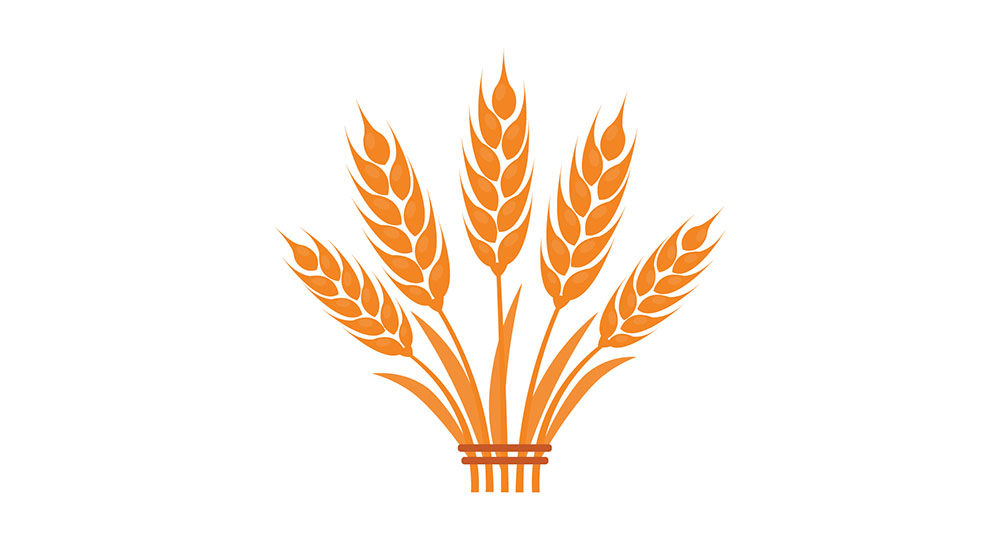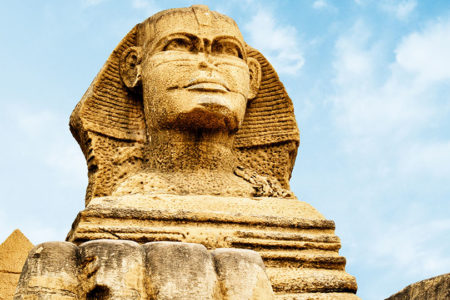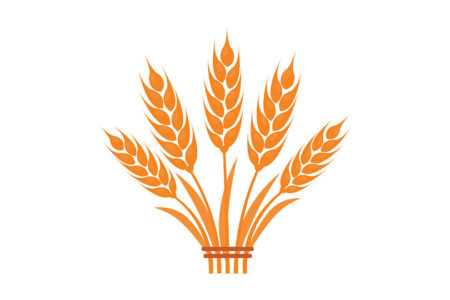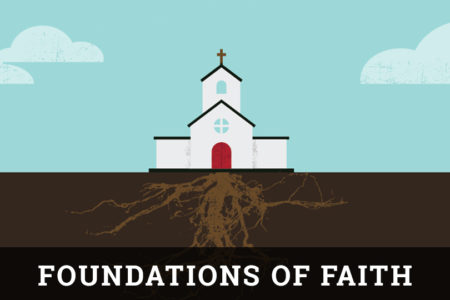Joseph and His Tribes
Joseph is a fruitful bough, even a fruitful bough by a well, whose branches run over the wall (Gen. 49:22).
As the aged, bedridden Jacob pronounced prophetic blessings on his sons by Leah, Bilhah, and Zilpah, he must have looked forward with great anticipation to what God had in store for his two youngest sons—Joseph and Benjamin. These were the sons of his first love, the wife for whom he had worked so long, his beloved Rachel.
Rachel had been barren for many years, while her sisterly rival Leah had given Jacob six sons. Although her handmaid Bilhah (according to the custom of those days) had provided Jacob with two sons, Rachel still longed for children of her own flesh and blood. In desperation, she cried out to Jacob, “Give me children, or else I die” (Gen. 30:1). In tender mercy, God responded to her cry: “And God remembered Rachel, and God hearkened to her, and opened her womb. And she conceived, and bore a son; and said, God hath taken away my reproach: And she called his name Joseph; and said, The Lord shall add to me another son” (Gen. 30:22–24). The Hebrew meaning of the name Joseph is may He add. In other words, while Rachel was thankful for this son, she desired at least one more. God also granted that request when she gave birth to Benjamin shortly before her death (Gen. 35:16–18).
A Look Back
Jacob’s initial words to Joseph strike the keynote of this entire oracle, which is the longest in this marvelous series of prophecies. “Joseph is a fruitful bough, even a fruitful bough by a well, whose branches run over the wall” (Gen. 49:22). As fruitfulness marked Joseph’s life (vv. 22–24), it would also characterize his descendants (vv. 25–26).
The reference to Joseph as a “fruitful bough” recalls his own remark recorded in Genesis 41:52: “And the name of the second [son] called he Ephraim: For God hath caused me to be fruitful in the land of my affliction.” In spite of the numerous obstacles placed in his path, Joseph was faithful and fruitful in overcoming each one.
When Jacob looked back at his son’s life, it was this important lesson that he mentioned: “The archers have harassed him, and shot at him, and hated him; But his bow abode in strength, and the arms of his hands were made strong by the hands of the mighty God of Jacob (from there is the shepherd, the stone of Israel)” (Gen. 49:23–24). In spite of Joseph’s suffering at the hands of his brothers, his trust in God was unswerving. Genesis commentator George Bush aptly observed, “The prophecy here points to Joseph in person, from whose history its fulfillment appears evident. He was aimed and shot at, as it were, by the bitter and reviling words of his brethren, and still more deeply wounded by their cruel treatment. He was sold into Egypt through envy, and imprisoned by a lie. His virtue was violently assaulted by his mistress [Potiphar’s wife], his innocence wronged by his master, and his patience severely tried by the ingratitude of a fellow-prisoner. Yet‘his bow abode in strength.’The divine favor forsook him not.”
The source of Joseph’s strength was his knowledge of the true God. Five titles of the Lord are mentioned in this passage. Each illustrates some aspect of His character: “the mighty God of Jacob… the shepherd, the stone of Israel” (v. 24), the “God [El] of thy father… the Almighty” (v. 25). Although each of these titles bears precious truth, consider only the last one, “Almighty.” The Hebrew word is Shaddai, which carries the idea of All-Sufficient One or Sustainer. It is formed from the Hebrew word for a mother’s breast (shad), which nourishes and sustains the child. In the same way, God sustained Joseph in his weakness. It is also interesting to note that when Jacob described the abundant blessings on Joseph, he carefully mentioned “blessings of the breasts [shad]” (v. 25).
Because of his intimate knowledge of God, Joseph was able to discern His hand even in his personal setbacks. When he finally revealed his identity to his brothers, he told them, “Now therefore be not grieved, nor angry with yourselves, that ye sold me here; for God did send me before you to preserve life … And God sent me before you to preserve you a posterity in the earth, and to save your lives by a great deliverance. So now it was not you that sent me here, but God: and he hath made me a father to Pharaoh, and lord of all his house, and a ruler throughout all the land of Egypt” (Gen. 45:5, 7–8). It is striking to consider that almost every time Joseph spoke in the biblical text, he mentioned God. Such a God-filled life will also lead us to discern God’s hand even in our trials and troubles and to perceive His purpose and leading even in the difficult circumstances we encounter. This is the great lesson to be learned from the life of Joseph.
A Look Ahead
The remainder of Jacob’s prophecy looks forward to the blessings to be experienced by the tribe of Joseph. “The blessings of thy father have prevailed above the blessings of my progenitors unto the utmost bound of the everlasting hills: they shall be on the head of Joseph, and on the crown of the head of him that was separate from his brethren” (Gen. 49:26). The words “bless” or “blessings” appear six times in verses 25 and 26. These blessings are placed squarely on Joseph’s head, “the head of him that was separate from his brethren.” The word “separate” is nazir, which is used later to describe one who took a Nazirite vow to be separated from the fruit of the vine and from dead bodies, as well as to refrain from cutting his hair (Num. 6:2–21). The use of the word here, however, recalls the long period of time during which God set Joseph apart from his brothers and advanced him to preeminence over them.
The patriarchal blessing, normally reserved for the firstborn son, was imparted instead to Joseph. Reuben, because of his incest with Bilhah, had forfeited his leadership role to Judah and his father’s double blessing to Joseph: “Now the sons of Reuben, the first-born of Israel (for he was the first-born; but, forasmuch as he defiled his father’s bed, his birthright was given unto the sons of Joseph, the son of Israel, and the genealogy is not to be reckoned after the birthright; For Judah prevailed above his brethren, and of him came the prince; but the birthright was Joseph’s)” (1 Chr. 5:1–2; cp. Gen. 49:3–4). According to Deuteronomy 21:17, the privilege of the firstborn was to receive a double portion of the inheritance—a portion twice as large as that of each of his brothers. What effect did Joseph’s receiving the blessing of the firstborn have on his descendants?
When he became established in Egypt, Joseph and his wife Asenath had two sons, Manasseh and Ephraim (Gen. 41:50–52). When Jacob had been in Egypt for 17 years, Joseph and his two sons visited him as he lay on his sickbed. In the touching scene recorded in Genesis 48:1–22, Jacob actually adopted Ephraim and Manasseh as his own, elevating them legally to the position of his other sons. He told Joseph, “And now thy two sons, Ephraim and Manasseh, who were born unto thee in the land of Egypt before I came unto thee into Egypt, are mine; as Reuben and Simeon, they shall be mine” (Gen. 48:5). Therefore, the double blessing on Joseph meant that instead of producing one tribe, he would produce two. From that time forward, the lists of the tribes normally mention the tribes of Ephraim and Manasseh, rather than the tribe of Joseph. To be exact, tribal lists appear 16 times in the Bible after Genesis, and Joseph is mentioned only three times, his place usually taken by his sons Ephraim and Manasseh.
The great fruitfulness of these tribes is illustrated in the two census calculations taken at the beginning and end of the wilderness wandering. In Numbers 1, the total population of Ephraim and Manasseh (i.e., the tribe of Joseph) is 75,900, compared to 74,600 for the next largest tribe, Judah. In Numbers 26, their total population was 85,200 while Judah’s was 76,500. Jacob prophesied that the tribes of Ephraim and Manasseh would “grow into a multitude in the midst of the earth” (Gen. 48:16). He even wittingly switched his right hand to the head of the younger and prophesied that Ephraim would be greater than his older brother Manasseh, following a pattern practiced earlier in Genesis (Gen. 48:17–19). Manasseh was great in that his descendants had the largest land allotment of any tribe, actually settling on both sides of the Jordan with an eastern and a western branch. Ephraim, however, produced greater individuals (e.g., Joshua, Moses’successor). The prominence of Ephraim is illustrated by the fact that the entire northern kingdom often was called by his name alone by many of the later prophets (consider Jer. 31:9, 20; Hos. 11:3; 12:1).
Some have tried to identify England and America as the modern tribes of Manasseh and Ephraim and thus the recipients of these promises. This teaching of British-Israelism, which began in the nineteenth century, is now a doctrinal plank of many cults and white supremacist groups. However, we need look no further than the scriptural history of the tribes of Ephraim and Manasseh to find the fulfillment of these promises of blessing and fruitfulness.
After meditating on the faithful life and fruitfulness of Joseph, one final lesson emerges. Joseph is a convincing example of the truth stated in 1 Peter 5:6: “Humble yourselves, therefore, under the mighty hand of God, that he may exalt you in due time.” Humanly speaking, it must have been extremely difficult for Joseph to wait for God’s timing after having been unjustly sold as a slave, unjustly imprisoned for remaining pure, and unjustly forgotten by an acquaintance whom he had helped. Most of us would have cried out, “Why me?” Yet Joseph waited on God during his trials, without seeking either revenge or advancement. Finally, in His timing, God exalted His faithful servant and lifted him to a place of honor where he could be a blessing to others.
Our responsibility is not to be ambitious and self-seeking. It is to be faithful. God’s job is to hand out the promotions. Joseph faithfully waited in prison before he was lifted to the throne. Moses faithfully labored in Midian before he challenged the power of Egypt. Elijah faithfully waited at Cherith before he triumphed at Carmel. Jesus faithfully carried the cross before He wore the crown.
This is a principle of spiritual growth: “thou hast been faithful over a few things, I will make thee ruler over many things” (Mt. 25:21, 23).
May this great lesson of Joseph’s faithfulness in trial not be lost on our impatient and ambitious egos.








